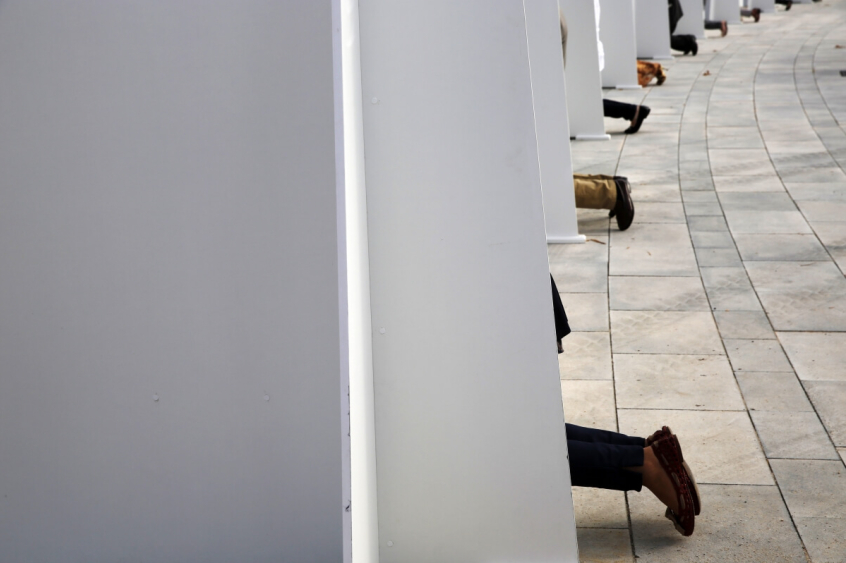Priests are accusing the Anglican diocese of Canterbury of breaking church law by ordering clergy to report confessions of sex abuse.
Guidance to priests warns they are 'duty bound' to pass on concerns 'about the wellbeing or safeguarding of another person or yourself', even if they hear it in the confession box.

Although the practice of confession is rarer in Anglican churches than it is in Catholic ones, it is still present within the Church of England. Canon law dictates that anything heard in confession must be kept secret and the issue was raised by the independent inquiry into sex abuse in March which expressed concern that paedophiles could confess their abuse and go unreported.
However the safeguarding guidance from Canterbury diocese, issued in 2015, makes clear that if a priest hears a confession related to abuse, they are 'unable to keep such information confidential'.
In a new statement today, the diocese denied the instructions broke the strict confidentiality around confession — known as the 'Seal of the Confession' — and said they arose after someone confessed ongoing abuse to a priest.
'This guidance has not – as some have claimed – "abolished the Seal of the Confessional",' said Julian Hills, the diocesan secretary. 'Rather, it is intended to advise the penitent not to divulge in confession something which would legally compromise the position of the priest – and therefore require that priest to choose between their responsibility to protect someone from harm and the usual requirement of confidentiality.'
The guidance is three years old and was designed to prevent priests being put in a morally and legally compromised position, a spokesperson added, saying it was aimed at preventing parishioners disclosing abuse in the confessional.
In a previous paragraph the guidance concedes that 'canon law constrains a priest from disclosing details of any crime or offence which is revealed in the course of formal confession' but says 'there is some doubt as to whether this absolute privilege is consistent with the civil law'.
It instructs clergy: 'Where a penitent's own behaviour is at issue, the priest should not only urge the person to report it to the police or the local authority social care, if that is appropriate, but may judge it necessary to withhold absolution. In such a case the priest may consider it necessary to alert the Bishop to his or her decision in order to safeguard himself or herself and seek advice on the issues, though the penitent's details would not be shared without their permission. The priest may also judge it appropriate to encourage the penitent to speak personally to the Bishop.'
The guidance has come to light after senior Church of England bishops discussed a report this month that considered the issue of confession in light of safeguarding. It prompted concerns from some on the Catholic wing of the Church of England that the practice could be abolished. The report, which one source said hinted at the abolition of confession, was rejected by the bishops and sent back for further work.
Canon Dr Robin Ward, principal of the theological college St Stephen's House, Oxford, told Christian Today Canterbury's guidance breaks canon law and contradicts the Church's previous instructions to clergy on hearing confession in 2015.
'The Canterbury advice to clergy is uncanonical and the explanation given by the diocese simply doesn't hold water,' he told Christian Today.
'It is completely disingenuous to say that this guidance does not break the Seal of the Confession — it invites that to happen.'
Paul Richardson, the former Anglican bishop of Papua New Guinea who converted to become a Catholic priest, said the issue of confession in relation to sex abuse was a 'white elephant'.
He told Christian Today: 'If somebody comes to you in confession and confesses a crime, you cannot grant them absolution until they have reported themselves to the police.
'If you said priests had to report [what they heard in confession] they just wouldn't because they can't. They would be at pains of excommunication.'













